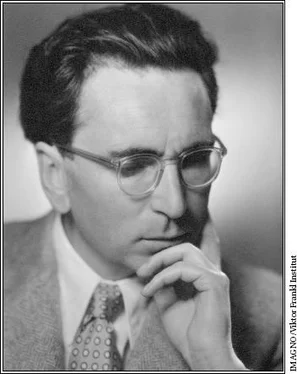Is this not reminiscent of another parallel, a parallel that confronts us day by day? I think of those youngsters who, on a worldwide scale, refer to themselves as the “no future” generation. To be sure, it is not just a cigarette to which they resort; it is drugs.
In fact, the drug scene is one aspect of a more general mass phenomenon, namely the feeling of meaninglessness resulting from a frustration of our existential needs which in turn has become a universal phenomenon in our indus- trial societies. Today it is not only logotherapists who claim that the feeling of meaninglessness plays an ever increasing role in the etiology of neurosis. As Irvin D. Yalom of Stanford University states in Existential Psychotherapy : “Of forty consecutive patients applying for therapy at a psychiatric outpatient clinic … twelve (30 percent) had some major problem involving meaning (as adjudged from self-ratings, therapists, or independent judges).” 1Thousands of miles east of Palo Alto, the situation differs only by 1 percent; the most recent pertinent statistics indicate that in Vienna, 29 percent of the population complain that meaning is missing from their lives.
As to the causation of the feeling of meaninglessness, one may say, albeit in an oversimplifying vein, that people have enough to live by but nothing to live for; they have the means but no meaning. To be sure, some do not even have the means. In particular, I think of the mass of people who are today unemployed. Fifty years ago, I published a study 2devoted to a specific type of depression I had diagnosed in cases of young patients suffering from what I called “unemployment neurosis.” And I could show that this neurosis really originated in a twofold erroneous identification: being jobless was equated with being useless, and being useless was equated with having a meaningless life. Consequently, whenever I succeeded in persuading the patients to volunteer in youth organizations, adult education, public libraries and the like—in other words, as soon as they could fill their abundant free time with some sort of unpaid but meaningful activity—their depression disappeared although their economic situation had not changed and their hunger was the same. The truth is that man does not live by welfare alone.
Along with unemployment neurosis, which is triggered by an individual’s socioeconomic situation, there are other types of depression which are traceable back to psychodynamic or biochemical conditions, whichever the case may be. Accordingly, psychotherapy and pharmacotherapy are indicated respectively. Insofar as the feeling of meaninglessness is concerned, however, we should not overlook and forget that, per se, it is not a matter of pathology; rather than being the sign and symptom of a neurosis, it is, I would say, the proof of one’s humanness. But although it is not caused by anything pathological, it may well cause a pathological reaction; in other words, it is potentially pathogenic. Just consider the mass neurotic syndrome so pervasive in the young generation: there is ample empirical evidence that the three facets of this syndrome—depression, aggression, addiction —are due to what is called in logotherapy “the existential vacuum,” a feeling of emptiness and meaninglessness.
It goes without saying that not each and every case of depression is to be traced back to a feeling of meaninglessness, nor does suicide—in which depression sometimes eventuates—always result from an existential vacuum. But even if each and every case of suicide had not been undertaken out of a feeling of meaninglessness, it may well be that an individual’s impulse to take his life would have been overcome had he been aware of some meaning and purpose worth living for.
If, thus, a strong meaning orientation plays a decisive role in the prevention of suicide, what about intervention in cases in which there is a suicide risk? As a young doctor I spent four years in Austria’s largest state hospital where I was in charge of the pavilion in which severely depressed patients were accommodated—most of them having been admitted after a suicide attempt. I once calculated that I must have explored twelve thousand patients during those four years. What accumulated was quite a store of experience from which I still draw whenever I am confronted with someone who is prone to suicide. I explain to such a person that patients have repeatedly told me how happy they were that the suicide attempt had not been successful; weeks, months, years later, they told me, it turned out that there was a solution to their problem, an answer to their question, a meaning to their life. “Even if things only take such a good turn in one of a thousand cases,” my explanation continues, “who can guarantee that in your case it will not happen one day, sooner or later? But in the first place, you have to live to see the day on which it may happen, so you have to survive in order to see that day dawn, and from now on the responsibility for survival does not leave you.”
Regarding the second facet of the mass neurotic syndrome —aggression—let me cite an experiment once conducted by Carolyn Wood Sherif. She had succeeded in artificially building up mutual aggressions between groups of boy scouts, and observed that the aggressions only subsided when the youngsters dedicated themselves to a collective purpose—that is, the joint task of dragging out of the mud a carriage in which food had to be brought to their camp. Immediately, they were not only challenged but also united by a meaning they had to fulfill. 3
As for the third issue, addiction, I am reminded of the findings presented by Annemarie von Forstmeyer who noted that, as evidenced by tests and statistics, 90 percent of the alcoholics she studied had suffered from an abysmal feeling of meaninglessness. Of the drug addicts studied by Stanley Krippner, 100 percent believed that “things seemed meaningless.” 4
Now let us turn to the question of meaning itself. To begin with, I would like to clarify that, in the first place, the logotherapist is concerned with the potential meaning inherent and dormant in all the single situations one has to face throughout his or her life. Therefore, I will not be elaborating here on the meaning of one’s life as a whole, although I do not deny that such a long-range meaning does exist. To invoke an analogy, consider a movie: it consists of thousands upon thousands of individual pictures, and each of them makes sense and carries a meaning, yet the meaning of the whole film cannot be seen before its last sequence is shown. However, we cannot understand the whole film without having first understood each of its components, each of the individual pictures. Isn’t it the same with life? Doesn’t the final meaning of life, too, reveal itself, if at all, only at its end, on the verge of death? And doesn’t this final meaning, too, depend on whether or not the potential meaning of each single situation has been actualized to the best of the respective individual’s knowledge and belief?
The fact remains that meaning, and its perception, as seen from the logotherapeutic angle, is completely down to earth rather than afloat in the air or resident in an ivory tower. Sweepingly, I would locate the cognition of meaning—of the personal meaning of a concrete situation—midway between an “aha” experience along the lines of Karl Bühler’s concept and a Gestalt perception, say, along the lines of Max Wertheimer’s theory. The perception of meaning differs from the classical concept of Gestalt perception insofar as the latter implies the sudden awareness of a “figure” on a “ground,” whereas the perception of meaning, as I see it, more specifically boils down to becoming aware of a possibility against the background of reality or, to express it in plain words, to becoming aware of what can be done about a given situation.
Читать дальше












